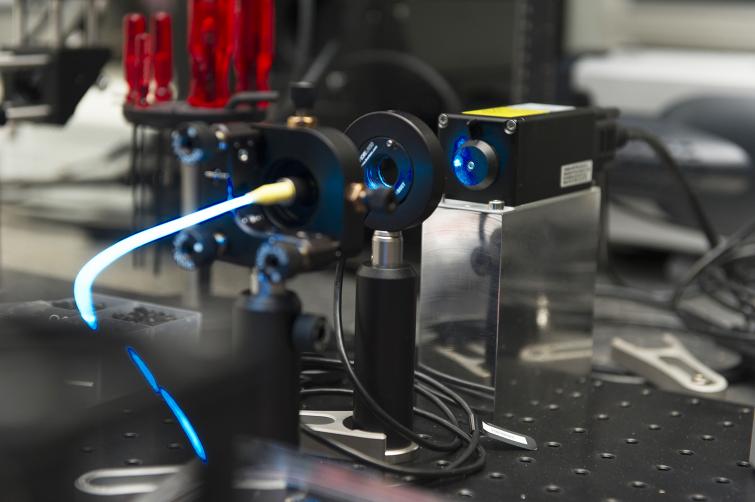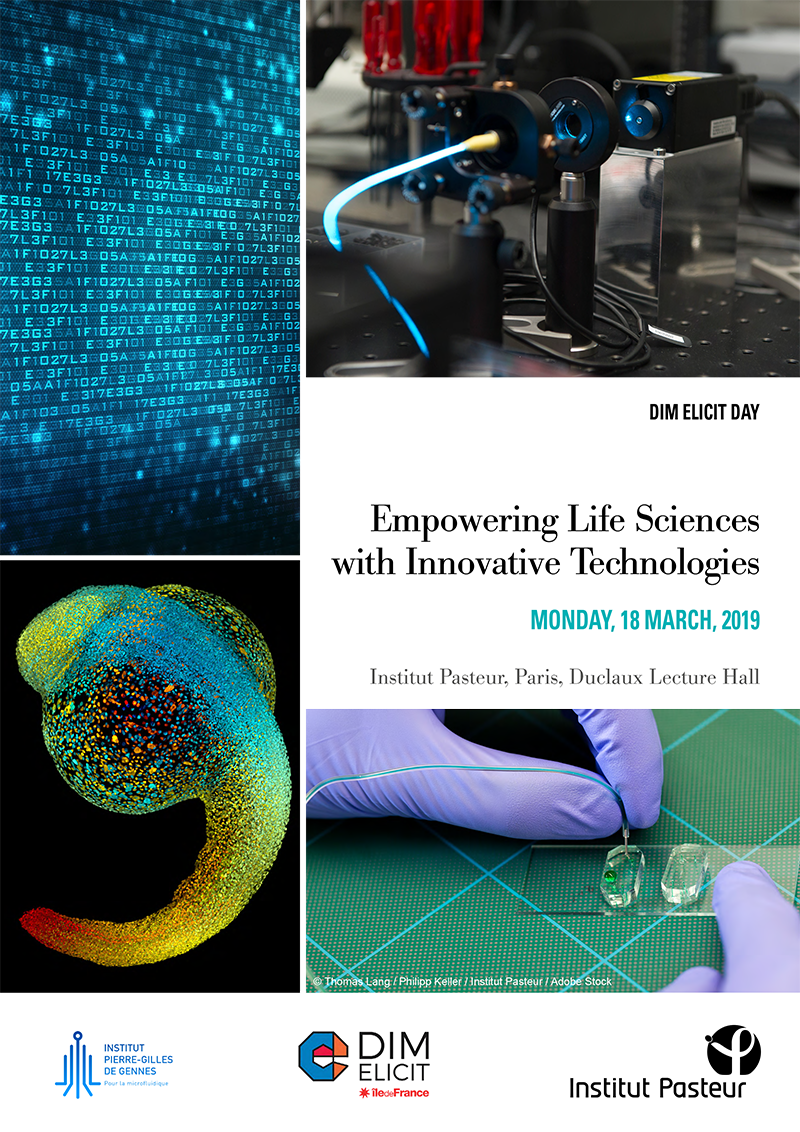
 innovation
innovation
Take part in DIM ELICIT DAY on March 18
In a bid to become Europe's leading region for science, the Greater Paris region has decided to support 13 research areas with high potential (mathematics, gene therapy, astrophysics, etc.), referred to as Fields of Major Interest (DIMs), over the 2017-2020 period. These fields are a way of structuring and strengthening existing research networks by giving them the resources they need to take action and boost their visibility.
DIM ELICIT (Empowering Life Sciences with Innovative Technologies), jointly coordinated by the Institut Pasteur (Jean-Christophe Olivo-Marin and Elodie Brient-Litzler) and the Pierre-Gilles-de-Gennes Institute for Microfluidics (IPGG, Patrick Tabeling), aims to support the use and development of innovative technologies for research in life sciences in the Greater Paris region.
The idea behind DIM ELICIT DAY, which will be held on March 18 on the Institut Pasteur campus, is to raise awareness among the scientific community of the projects funded by DIM ELICIT and to promote the work of startups in Greater Paris working in the four fields of application of DIM ELICIT: single-cell and single-molecule biology, organ-on-a-chip, technologies for in vivo biology, and low-cost, high-performance technology.
On this last topic, a leading speaker, Professor Jonathan Cooper from the University of Glasgow, will present his research on low-cost DNA detection techniques for diagnosing infectious diseases.
Contact: colloqueDIMELICIT@pasteur.fr
The event is free but prior registration is required by March 11, 2019
Combining technologies and life sciences paves the way for discoveries and innovations
DIM ELICIT encourages cooperation between research teams specializing in technology and biology with the aim of developing groundbreaking technologies and raising awareness of the potential of innovative technologies for new biology applications. Projects funded by DIM ELICIT must have a strong societal impact, especially in the field of biomedicine, and generate scientific and socio-economic value (startups, intellectual property, employability of young scientists, public-private partnerships, etc.). Cooperation with industry is therefore strongly encouraged.
DIM ELICIT covers three scientific areas: microfluidics, biophotonics and waves, and image analysis and big data.
Specifically, DIM ELICIT is aiming to support projects such as:
the development of new methods for detailed analysis of cancer cells or cells in the immune system,
the development of multimodal imaging systems to study brain connectivity, for example in connection with research on autism,
3D printing of biological tissues for the creation of custom transplants.
Since 2017, around 30 projects have been selected via several calls for proposals, seven of which were led by Institut Pasteur scientists.
